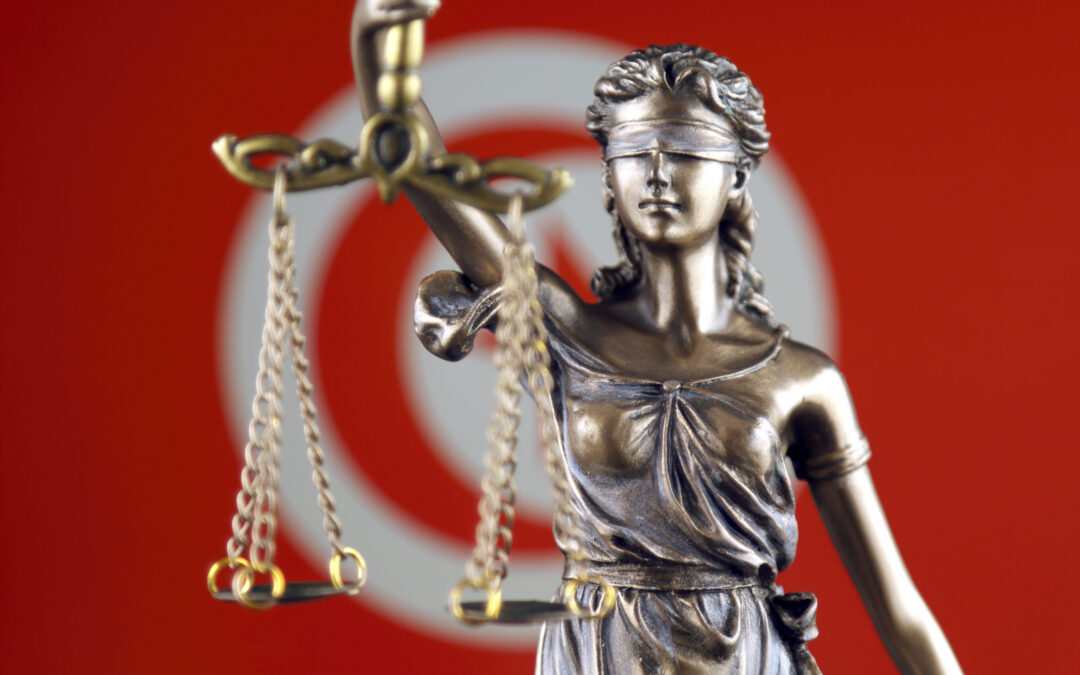
May 25, 2021 | News
As the third anniversary of the opening of trials before Tunisia’s Specialized Criminal Chambers (SCC) is approaching, the ICJ denounces the Tunisian authorities’ failure to adopt reforms necessary to advance accountability and justice for victims of gross human rights violations.
هذا البيان الصحفي متوفر باللغة العربية أيضاً
Trials before the SCC started on 29 May 2018. Since that first hearing, evident gaps and shortcomings in the Tunisian Criminal Code, the Code of Criminal Procedure and the Transitional Justice law have undermined efforts to hold perpetrators to account, bring justice to victims and prevent recurrence of gross human rights violations in the future.
“The Tunisian authorities have abdicated their responsibility to ensure the effective functioning of the SCC, depriving judges of basic tools to ensure that trials are conducted without undue delay and consistent with international fair trial standards,” said Said Benarbia, the ICJ’s MENA Programme Director.
Many offences referred by the Truth and Dignity Commission to the SCC are not adequately defined in the Tunisian law. Judicial rotation occurs mid-way through SCC trials, impacting the continuity of trials. Prosecutors are not effectively engaged in the conduct of trials. Accused are absent in most of the SCC trials, and the transitional justice framework does not provide for appeal chambers.
“By failing to address these obstacles, the Tunisian authorities are undermining the right of victims to truth and to effective remedies, and betraying the very promise of the transitional justice process to end impunity,” added Benarbia.” It’s high time for them to reverse course and live up to that promise.”
Background information
The ICJ has recommended reform to ensure the compliance of SCC proceedings with international law and standards, including through:
- Ensuring the adequate criminalization of gross human rights violations amounting to crimes under international law;
- Fully ensuring the rights of the accused to a fair trial;
- Ensuring the rights of victims, including their families, to an effective remedy and reparation;
- Ensuring the protection of victims and witnesses;
- Ensuring that the collection, admissibility and assessment of evidence guarantee the right of the accused to a fair trial and the victims’ right to an effective remedy.
In addition to the above reforms, the Tunisian authorities should remove all obstacles preventing the SCC and other judicial authorities from exercising their function in a manner that complies with international standards. To this end, the authorities should:
- Ensure that the Office of the Public Prosecutor and other investigative authorities carry out their mandate in an independent and impartial manner, as defined under the Code of Criminal Procedure;
- Ensure that the annual judicial rotation, as regulated by Organic Law No. 34 on the High Judicial Council, be consistent with the right of the accused to a fair trial
- Ensure that newly appointed SCC judges and prosecutors receive timely and adequate training in transitional justice as provided for by Organic Law No. 53 on Establishing and Organizing Transitional Justice;
- Ensure that, if the annual judicial rotation occurs mid-way through trials, safeguards be implemented with the view to ensuring that newly appointed judges hearing the case have the appropriate understanding of the evidence and arguments.
These recommendations are informed by the ICJ Practical Guide Series on Accountability Through the Specialized Criminal Chambers and findings on the role of international law and standards in proceedings before the SCC (Practical Guide 1), the investigation and prosecution of gross human rights violations under Tunisian and international law (Practical Guide 2), and the application of principles and best practices on evidence in the administration of justice before the SCC (Practical Guide 3).
The SCC were established in 2014 to adjudicate cases involving alleged “gross human rights violations” perpetrated between 1955 and 2013 and referred by the Truth and Dignity Commission (Instance Verité et Dignité, IVD) to the SCC.
At the end of its mandate in December 2018, the IVD’s referred to the SCC 200 cases of arbitrary deprivations of life, arbitrary deprivations of liberty, torture and other ill-treatment, enforced disappearance, rape and sexual assault and crimes against humanity committed by the former government.
In a briefing paper published in October 2020, the ICJ called on the Tunisian authorities to undertake substantial legal and policy reforms with a view to strengthening accountability and removing all obstacles preventing the SCC from functioning effectively.
Download this press release in PDF form here.
Contact:
Said Benarbia, Director, ICJ Middle East and North Africa Programme, t: +41-22-979-3817; e: said.benarbia(a)icj.org
Valentina Cadelo, Legal Adviser, ICJ Middle East and North Africa Programme, e: valentina.cadelo(a)icj.org
Asser Khattab, Research and Communications’ Officer, ICJ Middle East and North Africa Programme, e: asser.khattab(a)icj.org
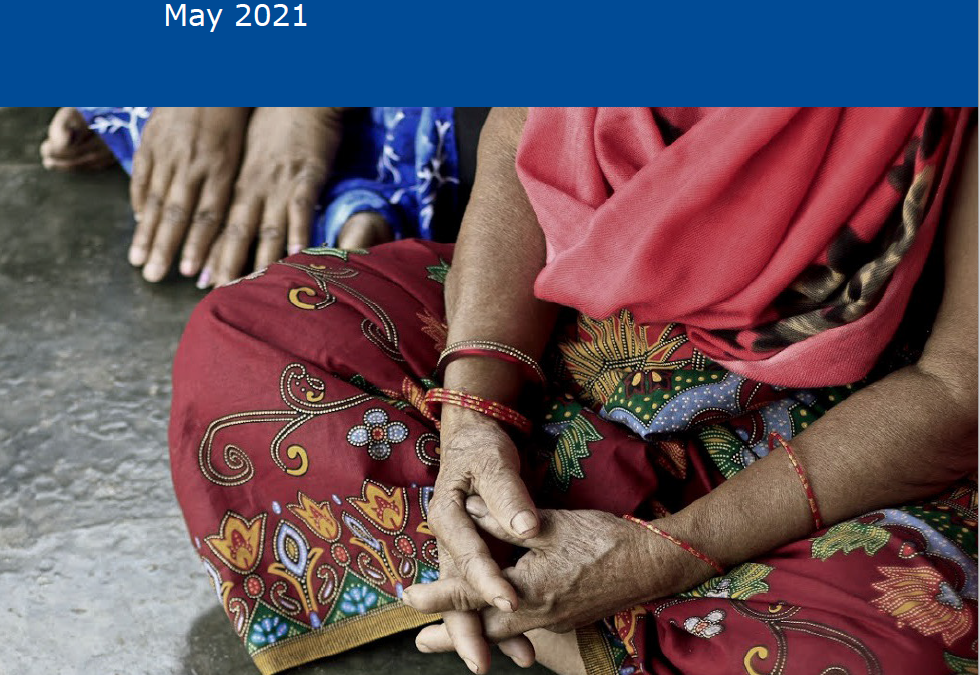
May 14, 2021 | Advocacy, News, Publications
The ICJ launched a new briefing paper Nepal: Transitional Justice Mechanisms with Gender Perspective in a webinar held on 12 May 2021.
The discussion included the need to give practical effect to Nepal’s obligation under international law to ensure the right to an effective remedy to the victims, including women victims of sexual and gender-based violence during the country’s internal armed conflict (1996 – 2006). Participants focused in particular on the need to ensure that gender issues are incorporated in the transitional justice mechanism.
The Honourable Kalyan Shrestha, former Chief Justice of the Supreme Court of Nepal and ICJ Commissioner, stressed the importance of the role of the Supreme Court of Nepal in establishing landmark jurisprudence on transitional justice.
Justice Shrestha explained how despite the fact that the country had established a progressive Constitution and amended legislation to provide for equality, non-discrimination and access to justice, women victims and survivors of a decade long armed conflict continued to face real barriers to justice. These including short periods of statute of limitations preventing the filing rape and sexual violations cases and lack of support mechanisms for women, which compounded existing economic pressure and social obstacles.
Bandana Rana, Member of the UN Committee on the Elimination of Discrimination against Women (CEDAW), addressed the situation of sexual and gender – based violence against women in Nepal during the armed conflict. She said that Nepal was bound by clear international legal obligations, including under the CEDAW and other treaties. Yet the Nepali government has not taken effective measures to ensure access to justice and the right to an effective remedy to the victims of SGBV during the conflict.
Laxmi Pokharel, ICJ Legal Adviser, summarized the ICJ’s briefing paper on “Nepal: Transitional Justice Mechanisms with Gender Perspective”. The Paper’s major recommendations, to the Government of Nepal, are:
- Amend the Truth and Reconciliation Act (TRC) in line with the Supreme Court’s order and Nepal’s international obligations;
- Ensure participatory, consultative processes while amending the TRC Act;
- Ensure the participation of women at all levels of recruitment, including in the formation of the recommendation committee, in the appointment of Commissioners of both the TRC and the Commission on Investigation of Disappeared Persons (COID) and at all levels of staffing with a view to ultimately achieving gender parity;
- Provide gender-sensitive trainings to the Commissioners and staff of the Commissions in order to enhance their capacity to address gender issues in their operation;
- Take all necessary steps to amend the Criminal Code to remove the statutory limitation for filing incidents of rape and other sexual violence, including in relation to acts committed during the armed conflict, in order to ensure justice for all victims;
- Ensure that amnesties and mediation are not used to replace criminal responsibility for gross violations of human rights, including rape and other sexual violence.
- Incorporate a gender-responsive approach in all aspects of the Commissions’ work, including in the interpretation and application of the mandate of the Commissions, prosecution of perpetrators and reparation to the victims and survivors;
- Incorporate an approach in the Commissions’ work that does not restrict women’s experiences during the armed conflict only to bodily harm suffered, but also takes account of structural gender biases and its consequences during the period of a conflict;
- Design and implement gender-friendly procedures for investigation, including statement taking, victim and witness protection and other activities of the Commissions;
- Design and implement specific reparation policies to address the unique needs of women victims;
- Ensure that the gendered aspects of the armed conflict, including its causes and consequences are incorporated in the final report of the Commissions;
- Take effective measures to ensure the widest possible dissemination of the final report of the Commissions in order to ensure that the wider population is made aware of the truth, most especially in relation to women.
The webinar was jointly organized by ICJ in collaboration with the United Nation’s Office of the High Commissioner for Human Rights (OHCHR) and UN Women. This event was organized under the ‘Enhancing Access to Justice for Women in Asia and the Pacific’ project funded by the Swedish International Development Cooperation Agency (SIDA). Due to the COVID – 19 pandemic the webinar was conducted virtually and live broadcasted on Facebook. It was conducted in English language and simultaneous translation in Nepali language was also available.
Contact
Laxmi Pokharel, ICJ Legal Adviser – Nepal, email: laxmi.pokharel(a)icj.org
Download
Briefing paper on “Nepal: Transitional Justice Mechanisms with Gender Perspective” (full report in PDF)
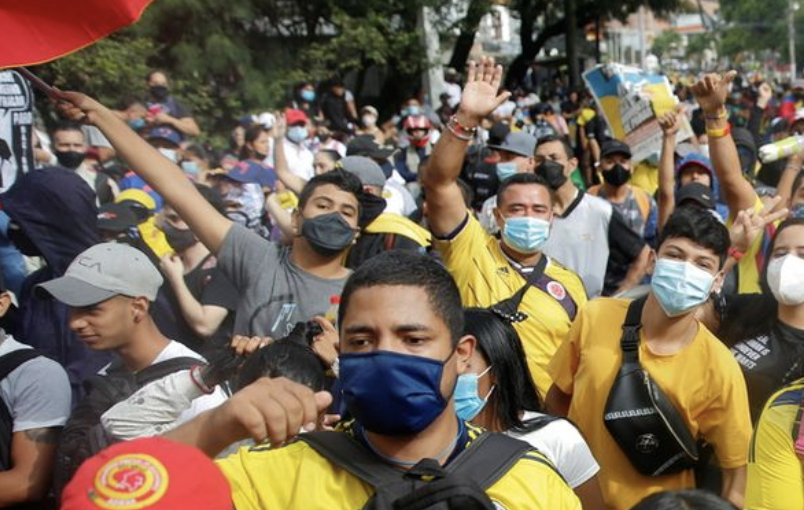
May 12, 2021
An opinion editorial by ICJ’s Commissioner, Rodrigo Uprimny. He presents seven measures to overcome the serious crisis Colombia is facing. He argues that authorities must make efforts to de-escalate violence and, in turn, escalate the protection of human rights.
The current crisis is severe. In a few days, more than 30 people have died, several of them from police bullets. There are also numerous disappeared persons. And there have been acts of extreme criminal vandalism, such as the attempt to incinerate several police officers inside a police station.
Apart from the severity, the crisis is complex. It is a result of a combination of old and new tensions, which have been accumulated and exploded due to a tax-reform bill proposal. But despite the complexity and severity, which make the crisis challenging to resolve, or perhaps precisely because of that, it is necessary to take measures to prevent the situation from getting worse.
The Government and political and social leaders must make efforts to deescalate violence. This requires escalating human rights, putting them at the centre of crisis management. So I propose seven measures oriented in that direction.
First, the president and, in general, all high-level government official must unequivocally condemn abuses by law enforcement officials. They must state that these acts will not be tolerated and will be investigated and punished. Unfortunately, those statements have not occurred.
Second, the organizers of the protests and those of us who share the protests must condemn not only the police abuses but also the acts of violence in the protests.
Third, the Office of the Ombudsperson and the Office of the Inspector General must remember that they are independent from the Government. They must take their independent role seriously. They must fulfil their constitutional function of defending human rights and denouncing abuses committed by authorities.
Unfortunately, despite the commitment of their officials, the interventions of these organizations have been weak due to the closeness of the Ombudsman and the Inspector General to the Government.
Fourth, authorities must identify and punish those who commit vandalism in the protests, especially against other people. At the same time, they must guarantee the right to peaceful protest, without stigmatizing the protest, and avoiding any excess in the use of force.
Thus, fifth, the Government and law enforcement officials must strictly comply with the ruling of the Supreme Court handed down in September 2020. In the ruling, the Supreme Court protected the right to peaceful protest and ordered authorities to refrain from stigmatizing the social protest and to adopt protocols to avoid excesses in the use of force.
Nevertheless, the ruling has not been applied in the ongoing protests. That is why several human rights organizations, including Dejusticia, filed a formal petition (incidente de desacato) against the Government.
Sixth, the Office of the General Prosecutor must investigate all violence committed during these protests, including those committed by the police, because if the crime is clearly contrary to the constitutional function of the law enforcement agencies, the case must go to the ordinary jurisdiction, in accordance with constitutional jurisprudence and with article 3 of Law 1407.
Seventh, the support of international human rights organizations should be sought. Consequentially, instead of obstructing the verification work of the Office in Colombia of the United Nations High Commissioner for Human Rights, as the Deputy Foreign Minister tried to do, the Government should facilitate the presence of other international bodies, such as the Inter-American Commission on Human Rights.
These measures and others of a similar nature, which put human rights at the centre of the crisis management, would help de-escalate the ongoing violence. At the same time, these measures would facilitate the necessary conversations to reach genuine national agreements on the ways to confront the underlying problems and tensions that fuelled the protests.
Notes:
Commissioner Uprimny is also Researcher at Dejusticia and member of the UN Committee on Economic, Social and Cultural Rights.
This op-ed was first published in Spanish in El Espectador on May 9, 2021
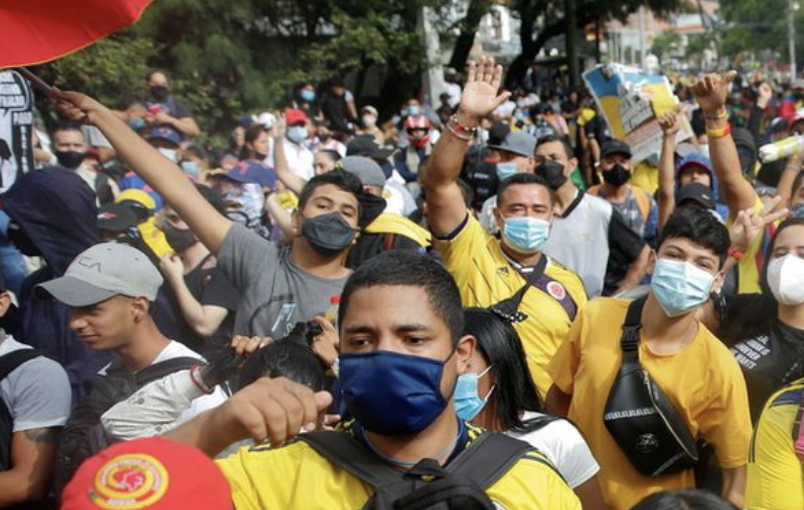
May 12, 2021 | Editorial, Noticias
En esta columna de opinión, el Comisionado de la CIJ, Rodrigo Uprimny, presenta siete medidas para superar la grave crisis que atraviesa Colombia, y para que el Gobierno y los líderes políticos hagan esfuerzos por desescalar la violencia y, a su vez, escalar la protección de los derechos humanos.
Esta crisis actual es muy grave. En pocos días han muerto más de 30 personas, varias de ellas por balas de la policía. Hay además numerosos desaparecidos. Y ha habido actos de vandalismo criminal extremo, como el intento de incinerar en un CAI a varios agentes de la policía.
Además de grave, esta crisis es compleja pues resulta de una combinación de tensiones viejas y nuevas, que se han acumulado y explotaron con ocasión del proyecto de reforma tributaria. Pero a pesar de su complejidad y gravedad, que hacen que la crisis sea difícil de resolver, o tal vez precisamente por eso, es necesario tomar medidas para evitar que se agrave más.
El Gobierno y los líderes políticos y sociales deben hacer esfuerzos por desescalar la violencia, para lo cual es necesario escalar los derechos humanos, poniéndolos en el centro del manejo de la crisis. Propongo entonces siete medidas orientadas en esa dirección.
Primero, el presidente y en general todo el alto Gobierno deben condenar inequívocamente los abusos de la Fuerza Pública y señalar que esos actos no serán tolerados y serán investigados y sancionados. Infortunadamente esas declaraciones no han ocurrido.
Segundo, los promotores del paro y quienes compartimos la protesta debemos condenar no sólo los abusos policiales sino también los actos de violencia en las protestas.
Tercero, la Defensoría y la Procuraduría deben recordar que son instituciones independientes del Gobierno y que deben tomar en serio y cumplir su función constitucional de defender los derechos humanos y denunciar los abusos de las autoridades. Infortunadamente, a pesar del compromiso de sus funcionarios, las intervenciones de esos organismos han sido débiles por la cercanía de sus jefes con el Gobierno.
Cuarto, las autoridades deben detectar y sancionar a quienes en las protestas comenten actos vandálicos, especialmente contra otras personas, pero garantizando la protesta pacífica, sin estigmatizarla, y evitando cualquier exceso en el uso de la fuerza.
Por esa razón, quinto, el Gobierno y la Fuerza Pública deben cumplir estrictamente la sentencia de tutela de la Corte Suprema de septiembre 2020, que al amparar el derecho a la protesta pacífica ordenó a las autoridades que se abstuvieran de estigmatizar la protesta y que adoptaran protocolos para evitar excesos en el uso de la fuerza.
Pero esa sentencia no ha sido cumplida en estas protestas, por lo cual los peticionarios de esa tutela, que fue apoyada por varias organizaciones de derechos humanos, entre las cuales está Dejusticia, presentaron un incidente de desacato contra el Gobierno.
Sexto, la Fiscalía debe investigar todas las violencias ocurridas en estas protestas, incluidas las de la policía, pues si el delito es claramente contrario a la función constitucional de la Fuerza Pública, el caso debe ir a la justicia ordinaria, conforme a la jurisprudencia constitucional y al artículo 3 de la Ley 1407.
Séptimo, debemos buscar el apoyo de organismos internacionales de derechos humanos. Por eso, en vez de obstruir la labor de verificación de la Oficina en Colombia de la Alta Comisionada de Derechos Humanos de Naciones Unidas, como intentó hacer la viceministra de Relaciones Exteriores, el Gobierno debería facilitar la presencia de otras instancias internacionales, como la Comisión Interamericana, para que nos ayuden a enfrentar la crisis.
Esas medidas y otras del mismo carácter, que ponen los derechos humanos en el centro del manejo de la crisis, ayudarían a desescalar las violencias, lo cual facilitaría al mismo tiempo los necesarios diálogos en la búsqueda de acuerdos nacionales genuinos para enfrentar los problemas y las tensiones subyacentes que alimentaron estas protestas.
Notas:
El Comisionado Uprimny también es Investigador en Dejusticia y miembro del Comité de Derechos Económicos, Sociales y Culturales.
Esta columna se publicó por primera vez en El Espectador el 9 de mayo de 2021.
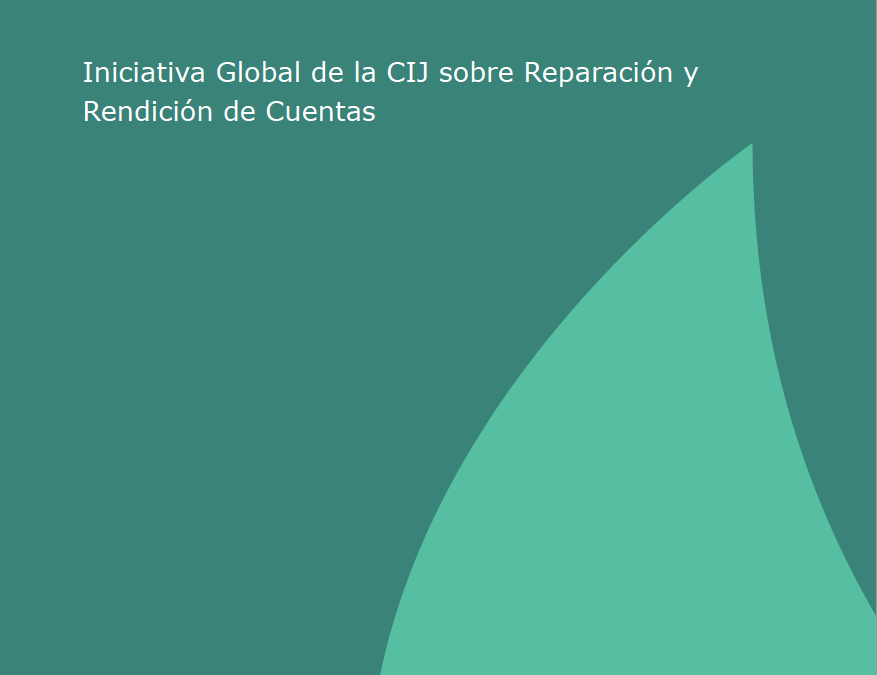
May 12, 2021
Peru has persistently failed to deliver accountability for enforced disappearances and extra-judicial killings, found the ICJ in a report released today.
The baseline study Perú: Desapariciones Forzadas y Ejecuciones Extrajudiciales, Estudio de línea de base (published in Spanish) identifies key obstacles to accountability for serious human rights violations in Peru, particularly for crimes under international law committed during the country’s internal armed conflict (1980-2000).
“There can be no sustainable peace without justice, and providing accountability and ending impunity demand committed implementation of judicial and non-judicial mechanisms”, said Sam Zarifi, Secretary General of the ICJ.
“It is worrisome that the human rights agenda is not a priority for the national government or the justice system. Considering that a new president will be elected soon, it is crucial that the new national government takes measures to prioritize human rights among the public policies. In particular, measures to improve criminal accountability and to provide full and effective reparation to victims should be adopted by the new government as an urgent matter,” he added.
Against a backdrop of ongoing impunity in the country, the ICJ found victims’ rights are not upheld despite the fact they are recognized under the domestic legal framework.
The justice system has handed down less than 100 criminal verdicts on human rights cases related to the armed conflict. The figure is surprisingly low considering that human rights violations and abuses were widespread and systematic during the armed conflict.
In relation to extrajudicial killings alone, the Truth Commission (Comisión de la Verdad y Reconciliación) documented 7,334 cases. In the case of enforced disappearance, the General Direction for the Search for Disappeared Persons (Dirección General de Búsqueda de Personas Desaparecidas) has documented 21,793 cases.
The study also examined other challenges such as the lack of implementation of reparation programmes, the slow progress in the search for the disappeared, and inadequate domestic legislation on the use of force by law enforcement officers.
Among others, the study recommends Perú should take the following steps:
- Improve the investigation and prosecution of serious human rights violations. To do so, among other measures, Perú should appoint judges and prosecutors exclusively dedicated to these crimes. Similarly, the Prosecution Office should consider not taking a case-by-case approach to investigations. Rather, it should follow a more systematic approach to identifying criminal patterns.
- Guarantee victims’ rights during criminal proceedings. Judicial authorities should ensure that victims can participate in each stage of the criminal proceedings. This is particularly important for videoconferencing hearings. Similarly, victims should have effective access to legal advice from the early stages of the criminal justice process.
- Improve the search for the disappeared. The national government must provide sufficient human and financial resources to ensure that the General Direction for the Search for Disappeared Persons may perform its mission adequately. At the same time, better coordination between the General Direction and the Prosecution Office is necessary. In addition, more effort should be applied to improve victims’ understanding of the Law on the search for disappeared persons (Law 30470).
Background
The baseline study was produced as part of the ICJ’s regional project addressing justice for extrajudicial killings and enforced disappearances in Colombia, Guatemala and Perú, sponsored by the European Union. The baseline study is available in Spanish.
The ICJ has long been monitoring laws, policies and practices concerning the investigation and prosecution of serious human rights violations and abuses in Perú, including enforced disappearances and extrajudicial killings, as part of its efforts to promote accountability, justice and the rule of law around the world.
The project is implemented under the ICJ’s Global Accountability Initiative, which has also produced baseline studies for Colombia, Eswatini, Nepal, Myanmar, Venezuela, Cambodia, Tajikistan and Tunisia.
Contacts:
Kingsley Abbott, Director of Global Accountability & International Justice. Email: kingsley.abbott(a)icj.org
Carolina Villadiego Burbano, Legal and Policy Adviser, Latin America, and Regional Coordinator of the Project. Email: carolina.villadiego(a)icj.org
Rocío Quintero M, Legal Adviser, Latin America. Email: rocio.quintero(a)icj.org
Download
Peru-GRA-Baseline-Study-Publications-Reports-Thematic-reports-2020-SPA (full report in Spanish, PDF)









